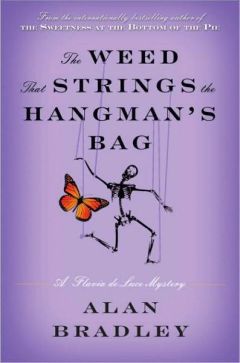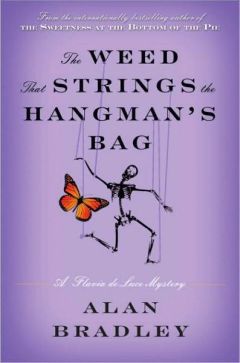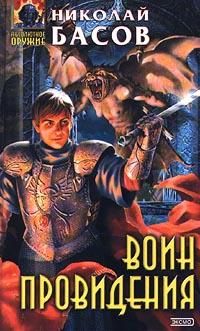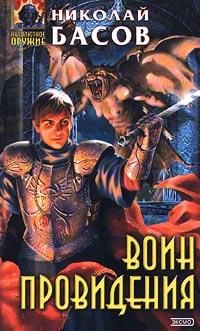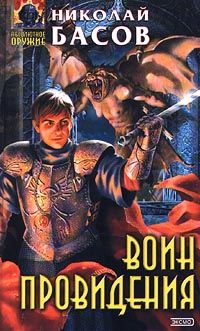Alan Bradley - A Red Herring Without Mustard: A Flavia de Luce Novel
I must say that Father behaved magnificently, although at first, I was sure he was going to faint. As Porcelain began her long, slow descent, his jaw muscles began tightening and loosening reflexively. As with most military men, it was the only permissible show of emotion, and as such, it was at once both nerve-wracking and deeply endearing.
Down and down she came towards us, floating on the air like some immortal sprite—a pixy, perhaps, I thought wildly. Perhaps Queen Mab herself!
As she neared the bottom, Porcelain broke into the most heartbreaking smile that I have ever seen on a human face: a smile that encompassed us all and yet, at the same time, managed to single out each one of us for particular dazzlement.
No queen—not even Cleopatra herself—had ever made such an entrance, and I found myself gaping in open-mouthed admiration at the sheer audacity of it.
As she swept lightly past me at the bottom of the stairs, she leaned in close upon my neck, her lips almost brushing my ear.
“How do I look?” she whispered.
All she needed was a rose in her teeth, but I hardly dared say so.
Father took a single step forward and offered her his arm.
“Shall we go in to dinner?” he asked.
“Macaroons!” Porcelain said. “How I love them!”
Mrs. Mullet beamed. “I shall give you the recipe, dear,” she said. “It’s the tinned milk as gives ’em the extra fillet.”
I nearly gagged, but a few deft passes of my table napkin provided a neat distraction.
Daffy and Feely, to give them credit, had—apart from their initial goggling—seemed not to have turned a hair at Porcelain’s borrowed costume, although they couldn’t take their eyes off her.
At the table, they asked interesting questions—mostly about her life in London during the war. In general, and against all odds, my sisters were charming beyond belief.
And Father … dear Father. Although Porcelain’s sudden appearance in Harriet’s wardrobe must have shocked him deeply, he managed somehow to keep a miraculously tight grip on himself. In fact, for a few hours, it was as if Harriet had been returned to him from the dead.
He smiled, he listened attentively, and at one point he even told rather an amusing story about an old lady’s first encounter with a beekeeper.
It was as if, for a few hours, Porcelain had cast a spell upon us all.
There was only one awkward moment, and it came towards the end of the evening.
Feely had just finished playing a lovely piano arrangement of Antonin Dvorak’s Gypsy Songs, Opus 55: Songs My Great-Grandfather Taught Me, one of her great favorites.
“Well,” she asked, getting up from the piano and turning to Porcelain, “what do you think? I’ve always wanted to hear the opinion of a real Gypsy.”
You could have cut the silence with a knife.
“Ophelia …” Father said.
I held my breath, afraid that Porcelain would be offended, but I needn’t have worried.
“Quite beautiful in places,” she said, giving Feely that dazzling smile. “Of course I’m no more than half-Gypsy, so I only enjoyed every other section.”
“I thought she was going to leap over the piano stool and scratch my eyes out!”
We were back upstairs in my bedroom after what had been, for both of us, something of an ordeal.
“Feely wouldn’t do that,” I said. “At least, not with Father in the room.”
There had been no mention of Brookie Harewood, and apart from a polite enquiry by Father (“I hope your grandmother is getting on well?”), nothing whatever said about Fenella.
It was just as well, as I didn’t fancy having to answer inconvenient, and perhaps even embarrassing, questions about my recent activities.
“They seem nice, though, your sisters, really,” Porcelain remarked.
“Ha!” I said. “Shows what little you know! I hate them!”
“Hate them? I should have thought you’d love them.”
“Of course I love them,” I said, throwing myself full length onto the bed. “That’s why I’m so good at hating them.”
“I think you’re having me on. What have they ever done to you?”
“They torture me,” I said. “But please don’t ask me for details.”
When I knew that I had gained her undivided attention, I rolled over onto my stomach so that I couldn’t see her.
Talking to someone dressed in my mother’s clothing was eerie enough, without recounting to her the tortures my sisters had inflicted upon me.
“Torture you?” she said. “In what way? Tell me about it.”
For a long while there was only the sound of my brass alarm clock ticking on the bedside table, chopping the long minutes into manageable segments.
Then, in a rush, it all came spilling out. I found myself telling her about my ordeal in the cellars: how they had lugged me down the stairs, dumped me on the stone floor, and frightened me with horrid voices; how they had told me I was a changeling, left behind by the pixies when the real Flavia de Luce was abducted.
Until I heard myself telling it to Porcelain, I had no idea how badly shaken the ordeal had left me.
“Do you believe me?” I asked, desperate, somehow, for a “yes.”
“I’d like to,” she said, “but it’s hard to imagine such ladylike young women operating their own private dungeon.”
Ladylike young women? I’m afraid I almost uttered a word that would have shocked a sailor.
“Come on,” I said, leaping to my feet and tugging at her arm. “I’ll show you what ladylike young women get up to when no one is looking.”
“Cor!” Porcelain said. “It’s a bloody crypt!”
In spite of an occasional electric bulb strung here and there on frayed wiring, the cellars were a sea of darkness. I had brought from the pantry the pewter candlestick that was kept for those not infrequent occasions when the current failed at Buckshaw, and I held it above my head, moving the flickering light from side to side.
“See? There’s the sack they threw over my head.
“And look,” I said, holding the candle down close to the flagstones. “Here are their footprints in the dust.”
“Seems like rather a lot of them for a couple of ladylike young women,” Porcelain said skeptically. “Rather large, too,” she added.
She was right. I could see that at once.
Distinct footprints led off into the darkness, too big to be Daffy’s or mine or Feely’s, which mingled near the bottom of the stairs. Nor were they Father’s: He had not come all the way down the steps, and even if he had, his leather-soled shoes left distinct impressions with which I was quite familiar.
Dogger’s footprints, too, were unmistakeable: long and narrow, and placed one in front of the other with the precision of a red Indian.
No, these were not Father’s footprints, nor were they Dogger’s. If my suspicions were correct, they had been made by someone wearing rubber boots.
“Let’s see where they go,” I said.
Porcelain’s presence bucked up my bravery no end, and I was ready to follow the prints to wherever they might take us.
“Do you think that’s wise?” she asked, the whites of her eyes flashing in the light of the candle. “No one knows we’re down here. If we fell into a pit or something, we might die before anyone found us.”
“There are no pits down here,” I said. “Just a lot of old cellars.”
“Are you sure?”
“Of course I’m sure. I’ve been down here hundreds of times.”
Which was a lie: Prior to my inquisition, I had been in the cellars just once, with Dogger, when I was five, hunting for a pair of eighteenth-century alabaster urns that had been put away at the beginning of the war to protect them from possible air raids.
Candle held high, I set off along one of the black passageways. Porcelain could either follow, or stay where she was in the dark shadows between the widely spaced electric bulbs.
Needless to say, she followed.
I had already formed the theory that the footprints had been made by Brookie Harewood—the late Brookie Harewood—but there was no point in mentioning this to Porcelain, who would probably get the wind up at the very idea of following in a dead man’s footsteps.
But what on earth could Brookie have been doing in the Buckshaw cellars?
“Poachers know all the shortcuts,” Father had once said, and again, he was probably right.
As we passed under a low brick archway, I let my mind fly back to the night I had caught Brookie in his midnight prowl of the drawing room. It was hard to believe that had been only five days ago.
I still had a perfect mental image of our strange interview, which had ended with Brookie warning me against housebreakers who might have their eyes on Father’s silver. “Lot of that going on nowadays, since the war,” he had said.
And then I had opened one of the French doors and made it quite clear that I wanted him to leave.
No—wait!—I had first unlocked the door!
The door had been locked when I entered the drawing room. And there was no earthly reason to believe that Brookie had locked it behind him if he had broken into the house from the terrace. He’d have wanted it ready for a quick escape, had he been in danger of being caught.
It was reasonable, therefore, to assume that Brookie had gained entry to the house by some other route: through the cellars, for instance.
And the footprints now before us, disappearing into the darkness—quite clear impressions of a fisherman’s gum boots, now that I stopped to think about it—suggested that my assumption was correct.
“Come on,” I said, sensing that Porcelain was hanging back. “Stay close behind me.”
I thought I heard a little whimper, but I may have been wrong.
We had passed the end of the string of electric lights, and were now in an arched passageway lined on both sides with piles of decaying furniture. Here the footprints—more than one set of them, but all made by the same pair of boots—revealed that they had ventured more than once into, and out of, Buckshaw. The most recent prints were razor sharp, while the older impressions were softened slightly by the incessant sifting of dust.
“What’s that?” Porcelain cried, seizing my shoulder with a painful grip.
Ahead of us, a shrouded object half blocked the passage.
“I don’t know,” I said.
“I thought you’d been down here hundreds of times,” she whispered.
“I have,” I told her, “but not in this particular passage.”
Before she could question me, I reached out, took hold of the corner of the sheet, and yanked it away.
A cloud of dust went billowing up, blinding us both—making us choke as if we had been caught in a sudden sandstorm.
“Oooh!” Porcelain wailed.
“It’s only dust,” I said, even though I was stifling.
And then the candle guttered—and went out.
I gave a silent curse and felt in my pocket.
“Hold this,” I said, finding her hands in the darkness and wrapping her fingers round the candlestick. “I’ll have it going in a jiff.”
I dug deeper into my pocket. Drat!
“Bad luck,” I said. “I think I left the matches in the pantry.”
I felt the candlestick being shoved back into my hands. After a brief moment, there was a scraping sound, and a match flared up brightly.
“Good job I thought to pick them up, then,” Porcelain said, applying the match to the candle. As the flame grew taller and more steady, I could see the object over which the sheet had been draped.
“Look!” I said. “It’s a sedan chair.”
The thing looked like an early closed-in motorcar whose wheels had been stolen. The wood paneling was painted light green with hand-drawn flowers clustered in the corners. The gold medallion on the door was the de Luce crest.
Inside the chair, fleur-de-lis wallpaper had peeled away and hung down in tongues upon the green velvet padding of the seat.
There was an odd musty smell about the chair, and it wasn’t just mice.
To think that some of my own ancestors had sat in this very box and been borne by other humans through the streets of some eighteenth-century city!
I wanted nothing more than to climb inside and become part of my family’s history. Just to sit, and nothing more.
“This is owned by a woman,” Porcelain said in a slow, strange voice that sounded, more than anything, like an incantation. “Silk dress … powdered wig … white face, and a black spot—like a star—on her cheek. She wants—”
“Stop it!” I shouted, spinning round to face her. “I don’t want to play your stupid games.”
Porcelain stood perfectly still, staring, black eyes shining madly out of her white face. She was entirely covered with dust, Harriet’s flame-colored dress now faded to an ashen orange in the light of the flickering candle.
“Look at you,” she said in a voice that sounded to me accusing. “Just look at you!”
I couldn’t help thinking that I was in the presence of my mother’s ghost.
At that moment, a metallic clang came from the passageway ahead, and both of us jumped.
It sounded like iron on iron: chains being dragged through the bars of a cage.
“Come on,” Porcelain said, “let’s get out of here.”
“No, wait,” I said. “I want to find out what’s down here.”
She snatched the candlestick from my hand and began to move quickly back towards the stairs.
“Either come back with me, or stay here alone in the dark.”
I had no choice but to follow.
TWENTY-NINE
THE FLAME COLOR BEGAN to brighten as soon as I shoved the material into the beaker.
“See?” I said. “It’s working.”
“What is that stuff?” Porcelain asked.
“Dry-cleaning fluid,” I said, giving Harriet’s dress a poke with a glass rod, and stirring gently. “Carbon tetrachloride, actually.”
I couldn’t say its name without recalling, with pleasure, that the stuff had first been synthesized in 1839 by a Frenchman named Henri-Victor Regnault, a one-time upholsterer who had produced carbon tetrachloride through the reaction between chlorine and chloroform. One of the early uses of his invention had been to fumigate barrels of food in which various unpleasant insects had taken up residence; more recently, it had been used to charge fire extinguishers.
“Father uses it to scrutinize watermarks on postage stamps,” I said.
I did not mention that I had recently liberated the bottle from one of his storage cupboards for an experiment involving houseflies.
“Look at the dress. See how clean it is already? A few more minutes and it will be as good as new.”
Porcelain, who had wrapped herself in one of my old dressing gowns, looked on in awe.
I had changed into a cleanish dress and left the dusty one soaking in one of the laboratory’s sinks. Later, I would hang it from one of the gas chandeliers to dry.
“You de Luces are a strange lot,” Porcelain said.
“Ha! Less than an hour ago you thought that at least two of us were ladylike young women.”
